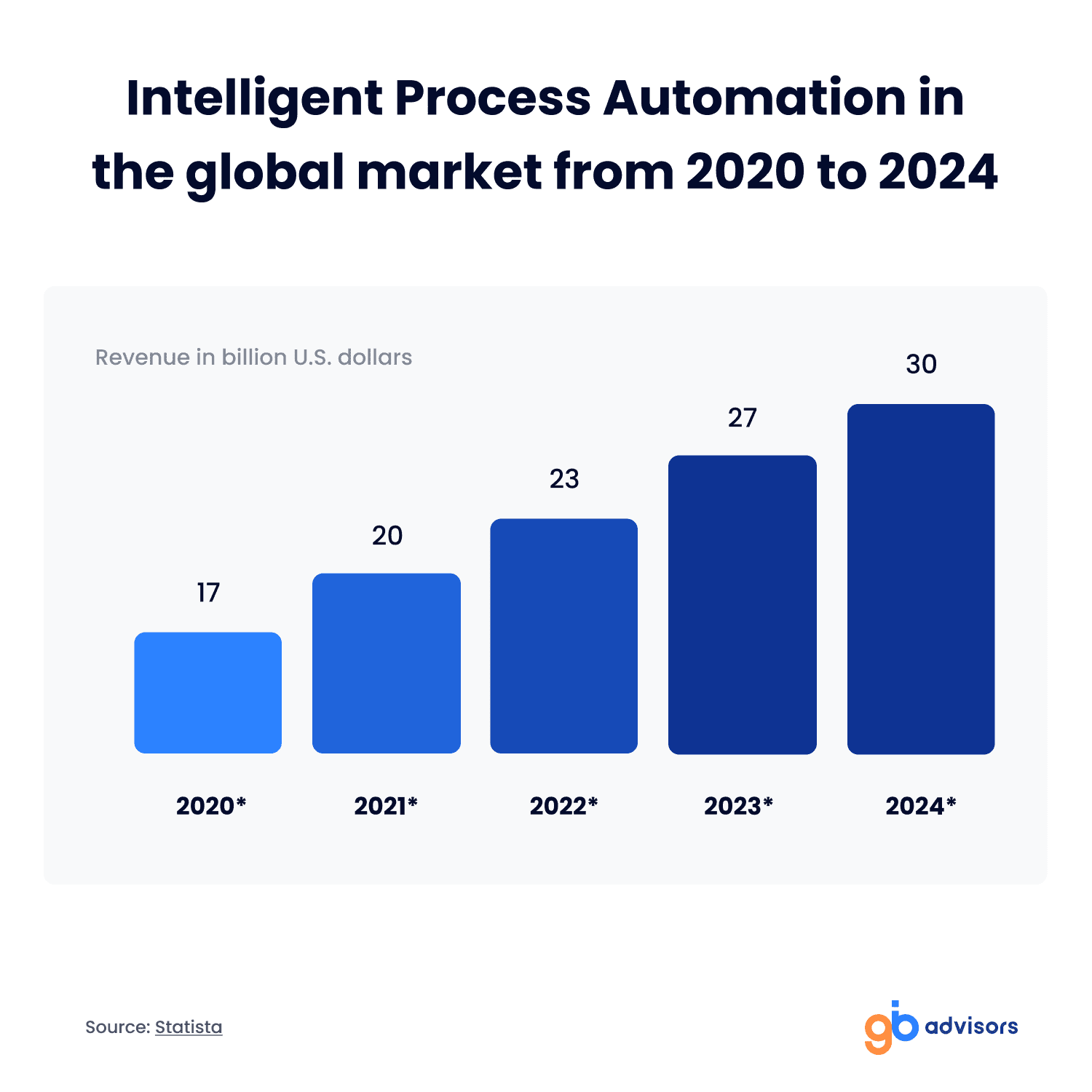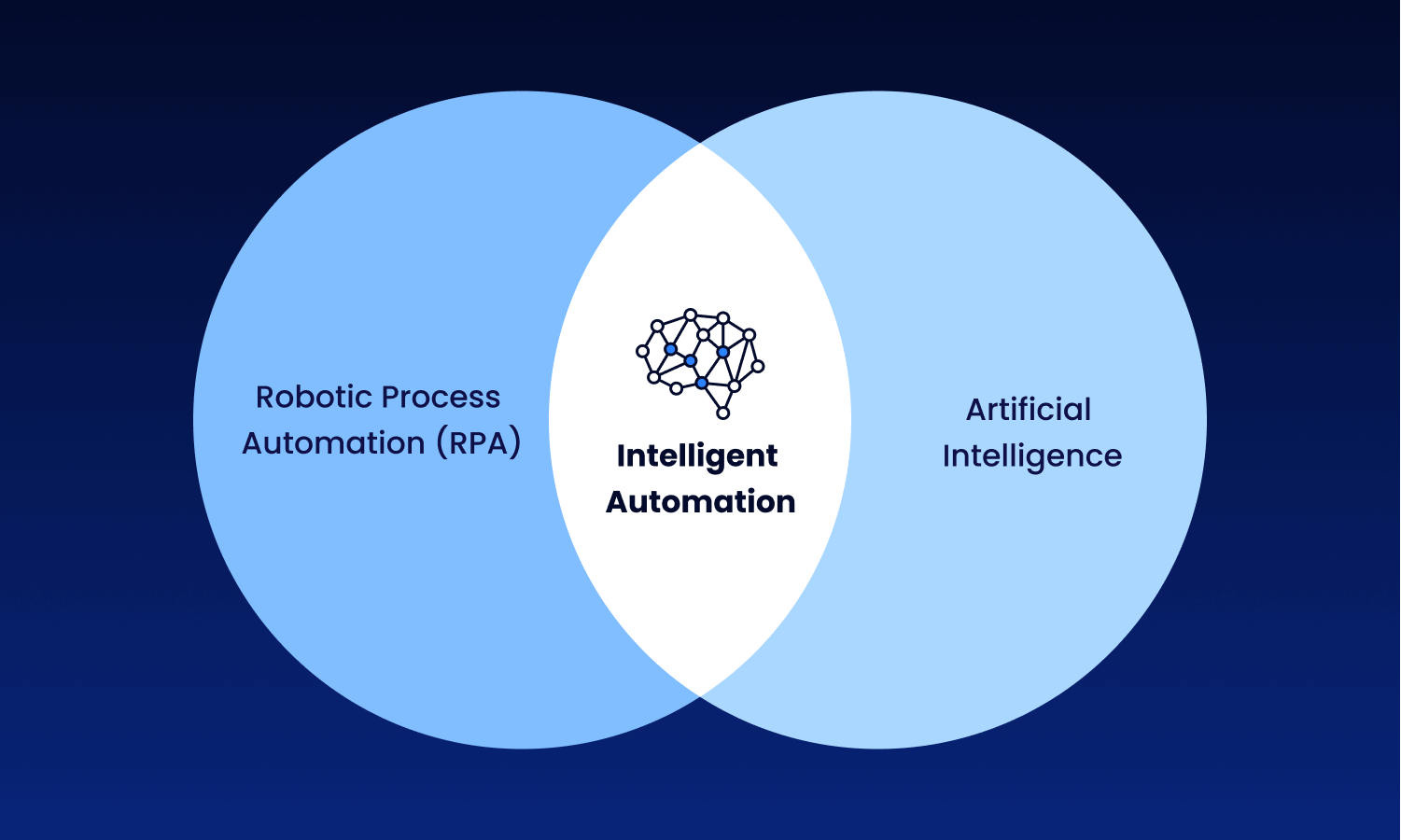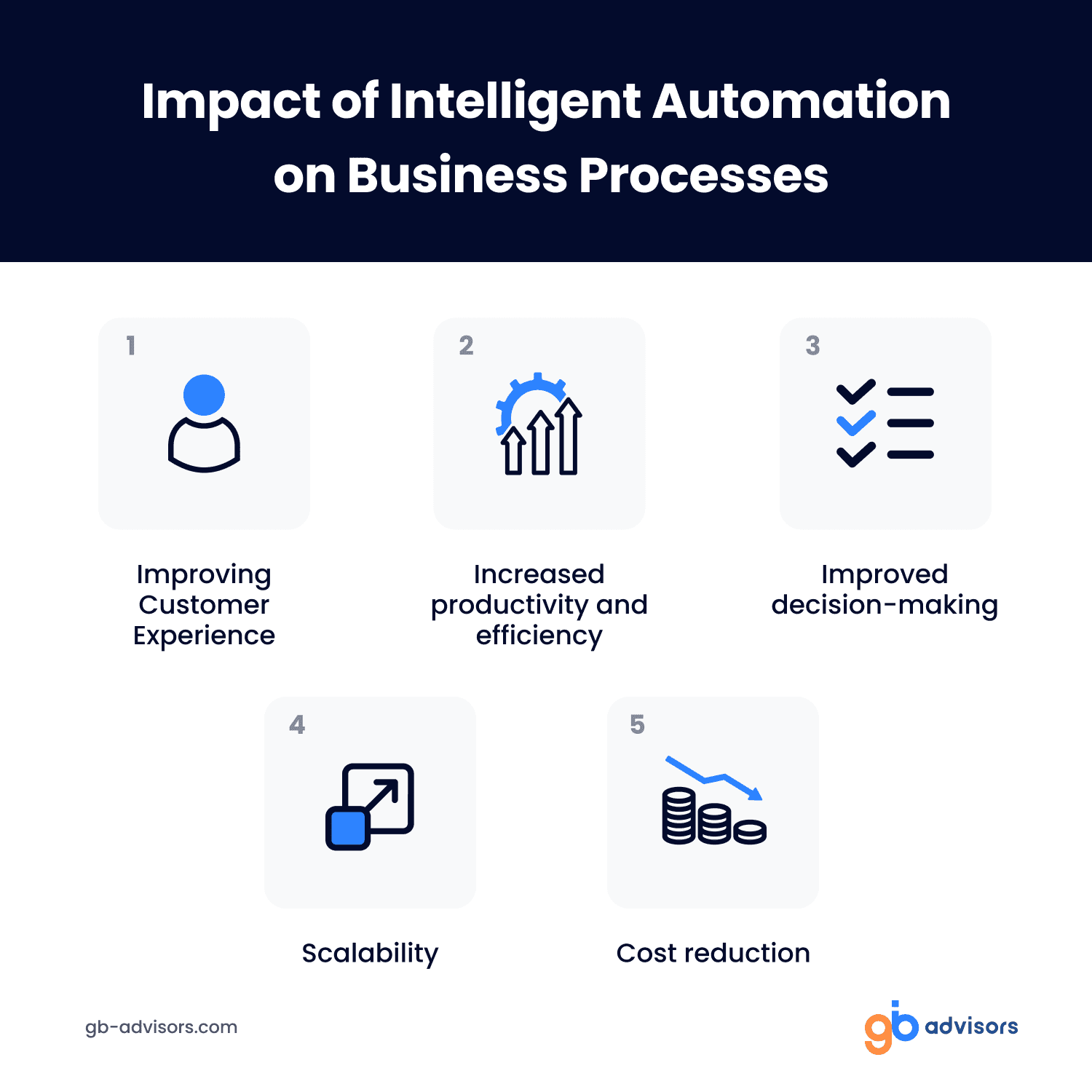In recent years, in the world of business technology and the digital transformation that has been gaining ground, we have not stopped talking about Process Automation. And, more recently, the controversial and revolutionary Artificial Intelligence.
These are not new concepts, but they are in constant development and are increasingly becoming essential, demonstrating their positive impact on the new way of doing business. Although they are different technologies, both have been combined to make business process automation much more efficient.
This combination is precisely what we are addressing today. Process automation + AI brings to the table an indispensable concept: Intelligent Automation (IA).
Want to know what it’s all about? Let’s take an in-depth look at the topic:
Artificial Intelligence Applied to Process Automation
First, let’s review some basic concepts:
Robotic Process Automation (RPA) or simply process automation is a way to automate business processes. It is done using software or a pre-configured robot to perform a set of tasks. This set of tasks encompasses the interactions of a user with a computer. Said interactions, when executed by a robot, enable the focus on activities of higher value and impact.
On the other hand, Artificial Intelligence (AI) is nothing more than a machine’s ability to mimic human cognitive behavior. That is, algorithms are combined to create systems capable of replicating cognitive processes in engines.
The main difference between Process Automation and Artificial Intelligence is that automation only processes structured and alphanumeric data. And AI allows extracting, classifying, and analyzing unstructured texts such as documents, chats, emails, as well as photos and sounds.
It is in these differences that the two technologies complement each other. AI can now be applied to automation to generate intelligent systems or robots that not only work with traditional “if-then” actions, but AI with the approach of machine learning algorithms can identify and define business rules.
Typical automation usually focuses on automating routine and repetitive tasks, such as data entry or invoice processing. Whereas, intelligent automation can now automate more complex tasks that require decision-making capabilities, such as fraud detection or risk management.
But let’s take a closer look at this concept:
So, what is Intelligent Automation?
Intelligent Automation (IA) is a combination of advanced technologies such as artificial intelligence, machine learning, and process automation to create systems that can perform complex tasks without human intervention.
This technology applies in different business sectors to simplify and streamline processes, reduce errors, and improve efficiency. AI is a valuable tool for increasing productivity and service quality. This allows employees to focus on more strategic and creative tasks.
Apart from Robotic Process Automation and Intelligence, other technologies used in intelligent automation, find:
Machine Learning (ML). ML is an AI technique that allows systems to learn and improve automatically from data. ML uses algorithms to identify patterns in data and create predictive models.
Natural Language Processing (NLP). PLN is set to process natural language data, such as speech and text, and to help systems understand the content. PLN systems can analyze large amounts of natural language data, extract relevant information, and automate processes such as processing customer requests.
Computer Vision. Also known as Computer Vision, this technology analyzes and processes images and video. And Computer Vision converts them into numerical or symbolic information. Computer vision systems can identify objects, faces, and text. This is used in processes such as quality inspection and automatic license plate recognition.
Benefits of Intelligent Automation
Increased efficiency
By automating repetitive and time-consuming tasks, companies can speed up processes and automate workflows. This increases productivity and efficiency.
Increased accuracy and reduced costs
Machines are less error-prone than humans. Therefore, they bring precision to processes and reduce errors or mistakes. Which, as we all know, can be costly to correct. In addition, by automating routine tasks and processes, companies can save money on labor costs.
Scalability
Intelligent automation can quickly scale up or down to meet a company’s changing demands. This means that companies can easily and effectively manage increases in demand without having to hire additional employees.
Improved customer experience
If we improve our internal processes, we are geared to produce an optimal end product or service. In addition, by leveraging intelligent automation technologies, such as machine learning and natural language processing, you can better understand your customers and deliver personalized experiences that meet their needs.
Improved decision-making
This technology provides real-time insights and data analytics that help managers make decisions based on more concrete and refined data.
Intelligent Automation Applications
AI has multiple applications in different industries. Here are some examples:
Healthcare
In healthcare, this technology improves billing and coding processes. For example, an intelligent automation system can automatically process medical records to assign the correct billing codes. This reduces errors and time spent completing the billing process.
Other common applications include:
- Booking and scheduling appointments.
- Collect and analyze data from patient records to streamline the care and support process.
- Automate reporting processes necessary for the healthcare quality control process.
Information Technology
In this industry, Intelligent Automation can be used to monitor systems and networks. You don’t need monitoring equipment to manually review system and network logs to detect problems. With automation systems powered by artificial intelligence, you can automatically monitor and analyze logs. In addition, you can alert support teams when issues or failures are detected in systems and networks.
This is what IT Service Management software does in companies that take a strategic approach (with ITIL or DevOps) to manage their IT infrastructure.
Some processes that intelligent automation optimizes are:
- Account unlocking and password resets. For example, an AI-powered chatbot can handle cases by interacting with the user, verifying the name in the directory, and resetting the account.
- Escalate service and support requests. This is one of the most common and time-consuming tasks at the service desk. Software with intelligent automation allows companies to set up rules for this task, so it does not require human intervention.
- Automate data entry or report generation.
Retail
In the area of retail, intelligent automation improves efficiency in the supply chain. For example, instead of having employees manually check inventory levels, a system with intelligent automation tools can constantly monitor inventory. And not only that but automatically order depleted inventory that is running low, improving overall supply chain management.
Other common uses are:
- Streamlining order processing. Chatbots can collect order information, verify stock availability, and process the transaction in a matter of minutes.
- Data analysis. AI can process and analyze sales and transaction data to identify market patterns and trends, which helps companies make better business decisions.
Insurance Industry
AI-driven process automation optimizes the risk management process. For example, an intelligent automation system can:
- Automatically evaluate policy details and claim documents to approve low-risk events.
- Notify suspicious claims for review by human staff.
In the insurance industry, this technology can also improve customer service. Internally: by improving data processing and analysis to better understand the customer’s personality and needs. Externally: with the installation of virtual assistants, knowledge bases, and other forms of self-service.

In short, intelligent automation is here to transform the way you do business. With it, you will be able to free up staff for more strategic and creative tasks.
In conclusion, it is an impressive and effective technology that shows a myriad of potential benefits in process automation. By accurately analyzing data or content and providing quick results, companies benefit from faster decision-making and improved customer service.
At GB Advisors, our team of professionals can show you customized solutions with intelligent automation. If you want to get started on the path to more efficient processes, then contact us 😊.




